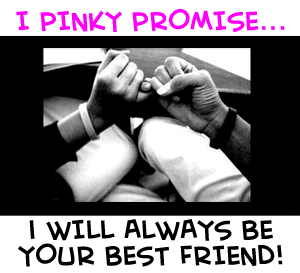 I am sure you’ve felt the sense of emptiness when a friend has moved or when someone has passed away or even after a breakup. Indeed, psychological science has known that we define ourselves – that is, we come to know who we are as a person-through our closest relationships. When the relationships go, so goes a very part of our existence.
I am sure you’ve felt the sense of emptiness when a friend has moved or when someone has passed away or even after a breakup. Indeed, psychological science has known that we define ourselves – that is, we come to know who we are as a person-through our closest relationships. When the relationships go, so goes a very part of our existence.
One of the reasons these events can hurt so immensely is that in real relationships – losing a friend or lover means we lose an important source of support and understanding. Being understood and having a close other sense, know and feel our experience is the hallmark of empathy. The ability to empathize with another person is among the most critical of all our human capabilities.
New research from the University of Virginia suggests that not only is empathy hardwired in ourbrains, but also that our brains process information about ourselves and our friends in a very similar way. In the study, the researchers discovered a very interesting phenomenon: The brain responds the same way when our friends are threatened. Results showed that the participants’ brains blurred the distinction between self and other with friends, but not with strangers. Brain mapping showed a very high correlation between the neural responses in the threat-to-self and the threat-to-friend conditions, but no such correlations between the threat-to-self and threat-to-stranger condition.
It is concluded that, “threat-responsive regions of the brain are capable of representing others in a manner that is very similar to the way they represent the self but tend to do so only to the extent that those others are perceived as familiar.” In other words, as far as your brain is concerned, when a close friend is in danger, it’s as if the danger were targeted at you.
When our friends are under the threat of shock, we experience that threat as real and meaningful. This is the neural basis of empathy. This is why we hurt when our friends hurt. This is also why we hurt when we lose our friends, family and lovers. Put simply, our brains and minds are organized in a manner that is deeply interconnected with the experiences of others. This may be the very essence of being human.
I see two big lessons here. First, this research reminds us that the feeling of losing a part of ourselves – a part of how we represent the world-is indeed real. This does not mean that you cannot recover what is lost, but is does confirm that the loss is real. It takes time to recover, and the building of new relationships (or the rekindling of old ones) may be the way forward.
Second, the idea of a social brain is very real. We depend on others to process complex information about the world, and our emotional states are intertwined with the emotional states of our friends, families and lovers.
When you stop to think about it, this idea is pretty radical. Our brains are not designed to process information exclusively about “me” but instead wired to process information about “us” (whoever the “us” might be). The upshot of this finding is that cultivating high quality relationships may be one of the most important things we can do to survive and thrive in this complex world.
Source: http://shine.yahoo.com/healthy-living/friends-more-important-think-140500237.html
